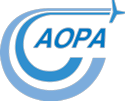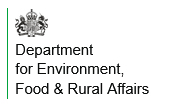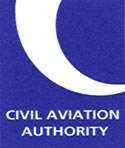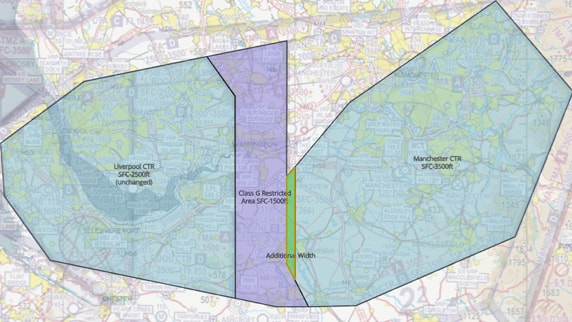View our latest and past news items.
- Details
- Published:
 |
FAA US AGENT FOR SERVICE or USA Address - Deadline July 7 2025 |
A certificate holder that does not register an agent for service by the July 7, 2025, deadline is not able to exercise the privileges of their certificate(s) and is subject to an enforcement action, which can, and most likely would, include up to certificate revocation.
An applicant who has not registered an agent-for-service before they apply for a certificate will not be issued said certificate.
BE AWARE that:
Pursuant to 14 CFR. 3.303, individuals who hold a certificate, rating, or authorization issued under 14 CFR Part 47, 61, 63, 65, 67, or 107, who fail to timely designate a U.S. agent for service and comply with the requirements under 14 CFR Part 3, subpart C, may not exercise the privileges of any certificate, rating, or authorization issued under 14 CFR Part 47, 61, 63, 65, 67, or 107, and an individual aircraft owner's aircraft registration certificate will be considered ineffective. The FAA may take enforcement action against these individuals consistent with FAA Enforcement and Compliance Order 2150.3.
The regulation also provides that after the deadline for compliance passes, applicants of any certificate, rating, or authorization issued under 14 CFR Part 47, 61, 63, 65, 67, or 107, who fail to designate a U.S. agent for service and comply with the requirements under 14 CFR Part 3, subpart C shall not be issued a certificate, rating, or authorization under 14 CFR 47, 61, 63, 65, 67, or 107.
If you wish to continue to exercise the privileges of an FAA Certificate, or be issued with a certificate or ratings, the steps needed to comply are:
If you have a physical US Mailing Address:
Login to the FAA Airmens Service https://amsrvs.registry.faa.gov/amsrvs/Home/ and update your mailing address.
If you don't have a physical US Mailing Address:
- Sign up to an FAA approved Agent for Service in the USA. AOPA US has been working on a Registered Agent for FAA Mail Service and the service is now available here: https://www.aoparegisteredagent.com/
- Login to the FAA Airmens Service https://amsrvs.registry.faa.gov/amsrvs/Home/ and make a note of your FAA Tracking Number (FTN).
- Inform the FAA of your appointed Agent for Service: https://usas.faa.gov/disclaimer and register/login (see also https://usas.faa.gov/documentation-external-designate )
- Details
- Published:
 |
sGAR: Expired BRPs and expired EUSS BRCs no longer acceptable for evidencing permission to travel to the UK. |
If a passenger has an eVisa, they may no longer have a physical visa or other permission document to inspect. The sGAR web user service will return a ‘Valid Permission to Travel’ message when the Home Office is able to automatically confirm a valid digital permission (whether an eVisa or an ETA) for the passenger. Pilots, operators, and agents should rely on this message as satisfactory evidence that a passenger has a valid UK immigration permission, and no further visa checks are necessary to establish the passenger’s permission to travel. However, pilots, operators, and agents should continue to check that all passengers are in possession of a valid passport, and that all documents are genuine and held by the rightful holder.
Some passengers may still only have a physical document proving their visa or permission to travel. In these cases, the sGAR web user service will return a ‘Authority to Carry Granted’ message from the Home Office. However, presenting a valid, genuine, physical proof of permission also remains satisfactory evidence of a passenger’s permission to travel to the UK.
Where a Valid Permission to Travel Found’ message is not received, the passenger may still have a valid immigration status and carriers will need to perform alternative checks to satisfy themselves that the individual has a permission to travel to the UK.
|
· If a passenger holds a valid visa or other physical document evidencing a permission to travel, these can still be used to evidence their permission to travel when boarding UK-bound services. This includes a vignette or wet ink endorsement in a previous passport that confers Indefinite Leave to Enter or Remain (when presented alongside a valid passport). · If the passenger has a newly issued passport, they may not have linked it to their UK Visas & Immigration (UKVI) account. The passenger may be able to self-resolve and update their new passport details in their UKVI account using the ‘Update Your Details’ service. If their biographic details, such as name or nationality have changed, they may be able to use the service, if they have a biometric passport. · If a passenger has no physical document evidencing a permission to travel, they can use the online View and Prove immigration status service, by issuing a Share Code to the carrier who can then check their permission via the online ’Check someone's immigration status' service. · Passengers travelling with a valid Home Office issued travel document on its own is currently acceptable. These are UK Home Office issued Refugee Travel Documents, UK Home Office issued Stateless Persons Travel Documents and UK Home Office issued Certificates of Travel. Carriers must continue to satisfy themselves that the document is genuine and that the individual is the rightful holder. This advice does not apply to Refugee, Stateless or other travel documents issued by other countries. |
For further advice on a passenger’s permission to travel, the UK Border Force Carrier Support Hub is available 24/7 if further advice is required on 0 300 369 0610 or +44 204 619 6020.
Additional resources including the Information Pack can be found here.
Acronyms:
BRP: Biometric Resident Permit
BRC: Biometric Resident Card
EUSS: EU Settlement Scheme
- Details
- Published:
 |
AIP GEN 3.4 - 3.2.6 Common Air-to-Air Channels for General Aviation |
Two channels 123.065 and 123.135 have been assigned for Air-to-Air communications. These channels should be used to share important safety information between pilots, where information is not provided by other services, such as ATC or FIS, mainly in uncontrolled airspace.
- Sharing Weather Issues
- Formation Flights
- Flights in Areas without ATC (Airspace Classes Golf and Echo)
- Flights in Areas without FIS Coverage
- Local Competitions (within Flying Clubs)
- Self-Coordination
The channels will eventually be allocated European-wide to enable cross-border communication without the necessity to retune to other channels. The use of 123.450 should be stopped.
- Details
- Published:
 |
EASA SERA amendments - Effective date 1 May 2025 |
The European Union Aviation Safety Agency (EASA) has introduced several significant amendments to the Standardised European Rules of the Air (SERA), effective from 1 May 2025. These changes aim to align with updated International Civil Aviation Organisation (ICAO) standards, enhance safety, and accommodate emerging aviation technologies.
If flying in Europe you should familiarise yourself with the changes, especially changes to flight plan requirements. Also note that the Channel Islands have adopted EASA SERA standards.
Article 5 has been removed to streamline the regulatory framework and eliminate outdated provisions.
Regulations (EU) 2023/1772 and 2024/1111 have revised flight planning procedures:
Submission Requirements: Flight plans must be submitted for any flight requiring air traffic control services, crossing international borders, or operating at night beyond the vicinity of an aerodrome.
Content Enhancements: Flight plans now require detailed information, including aircraft identification, flight rules, equipment capabilities, and emergency equipment.
Regulation (EU) 2024/1111 establishes requirements for the operation of manned aircraft with vertical take-off and landing (VTOL) capabilities, facilitating the integration of AAM into the existing airspace structure.
Updates have been made to align SERA with the latest ICAO provisions, including the completion of radio communication failure procedures and the removal of outdated supplements.
ED Decision 2024/007/R provides updated AMC and GM to support the application of the new regulations, offering clarity on compliance expectations.
Implications for UK Aviation:
While the UK has departed from the EU, the Civil Aviation Authority (CAA) continues to reference and adapt SERA regulations within domestic law. UK SERA applies to all aircraft operating in UK airspace, with supplementary rules to accommodate national requirements, such as VFR flight at night and specific exemptions.
- Details
- Published:
 |
AOPA Response to CAP3094:GA Pilot Licensing & Training Simplification Phase 3 Consultation |
The AOPA response to CAP3094 has been submitted to the CAA as follows:
Q5 Do you agree with our proposed changes to the PPL(A) syllabus regarding partial loss of engine power?: Yes
Please share any comments you may have: Partial power loss should be discussed prior to first solo, but should be handled as total loss of power until completion of circuit consolidation. Students would be unlikely to be able to deal with partial power loss until completion of Ex 16.
Q6 Do you agree with our proposed changes to the PPL (A) and (H) syllabi regarding the use of moving map devices?: Yes
Please share any comments you may have:Training should also include action in the event of the failure of a moving map device in flight and the use of alternatives/back-ups.
Q7 Please enter any comments you may have on the NPPL(A) to PPL(A) theoretical knowledge bridging requirements.
Please share any comments you may have: NPPL(A) SEP/TMG students should normally sit the PPL(A) exams so that NPPL(A) theoretical knowledge is equivalent to EASA LAPL(A) requirements of EASA Part-FCL 'AMC1 FCL.115; FCL.120 LAPL training course and theoretical knowledge examination' in order that potential future mutual recognition of UK NPPL(A) and EU LAPL(A) is not compromised.
Q8 Do you agree with our proposed changes to the PPL (A) and (H) skill test schedules regarding the use of moving map devices? Yes
Please share any comments you may have: Skill Test should include action in the event of degradation / failure of optional moving map devices and the use of alternatives/back-ups.
Q9 Do you agree with our proposed AMC1 to the revised FCL.210.A regarding crediting previous aeroplane experience towards the PPL(A)? Yes
Q10 Do you agree with our proposed GM to the revised FCL.210.A regarding crediting previous aeroplane experience towards the PPL(A)? Yes
Q11 Do you agree with our proposed AMC to facilitate a 35-hour PPL(A) course? Yes
Please share any comments you may have: We agree, but consider it unlikely that many applicants will be able to cope successfully with a 35hr course.
Q12 Please enter any comments you may have on the proposed GM for differences training.
Please share any comments you may have: In GM1 FCL.710(b), delete 'training'.
Q13 Do you agree with our proposed AMC1 and GM1 to the revised FCL.740.A? No
Please share any comments you may have: We partly disagree:
3.2 first bullet point should be amended to ‘Six hours of flight time must be flown in the second year of validity’ for clarity and should be as stated in OID 157-1-12 FCL.740.A(b)(1)(ii).
AMC1 FCL.740.A(b)(1)(ii) is directly from EASA AMC and GM to Part-FCL Issue 1, Amendment 13 and is OK.
GM1 FCL.740.A is excessively verbose for inclusion in UK Part-FCL. The section from “It is recommended [...]” to “[...] from personal experience.” is directly from EASA AMC and GM to Part-FCL Issue 1, Amendment 13 and is OK; however the section from “The following is [...]” to “[...] TEM and decision making” should be deleted and moved to a suitable CAA Standards Document. The bullet point which starts “If the instructor considers [...]” should be amended so that “[...] does not need to[...]” reads “[...] should not [...]”.
Q14 Do you agree with our proposed AMC2 to the revised FCL.740.A? No
Please share any comments you may have: It should not be stated that refresher flight training should normally be conducted as a single flight. As flight time experience can now be spread over 24 months, it would be reasonable for pilots to elect to receive refresher flight training as suits them throughout the period. Both bullet points should be deleted and the following inserted:
- The refresher flight training for the purpose of refreshing knowledge and skills applicable to the privileges of the rating may be satisfied by receiving instruction totalling at least 1 hour, which may be over the course of several flights. In this case, the instructor may only certify the training in accordance with FCL.945 after the required flight time has been completed.
Q15 Do you agree with our proposed AMC3 to the revised FCL.740.A? Yes
Please share any comments you may have: We agree only as a temporary expedient pending formal amendment of FCL.740.A(b)(1)(ii) to include the IMCR/IRR exemption introduced over 15 years ago in LASORS2010, so that it will then read:
“— refresher training of at least 1 hour of total flight time with a flight instructor (FI) or a class rating instructor (CRI). Applicants shall be exempted from this refresher training if they have passed a class or type rating proficiency check, skill test or assessment of competence in any other class or type of aeroplane or by a flight test for the issue/revalidation or renewal of a UK IMC / IR(R) rating.”
This exemption is widely applied throughout the industry and it is imperative that it remains so. If it is not possible to include it in the forthcoming 1st October 2025 SI release, then an ORS4 exemption should be issued.
Q16 Do you agree with our proposed AMC and GM to the revised DTO.GEN.240 and ORA.ATO.135? Yes
Please share any comments you may have: To avoid any confusion regarding the alternative use of non-Part 21 training aircraft issued with a national permit to fly, ORA.ATO.135/DTO.GEN.240(aa)(1) should be amended to include the word ‘or’ as follows:
(1) hold a certificate of airworthiness issued in accordance with Annex 8 to the Chicago Convention; or
Q17 Please enter any comments you may have on the proposed removal of the AMC/GM listed above.
Please share any comments you may have: We agree with the proposals.
- Details
- Published:
 |
Ban on personal imports of meat and dairy products extended to cover all EU countries |
The Government has taken measures to prevent the spread of foot and mouth disease (FMD) following a rising number of cases across Europe.
From Saturday 12th April 2025, travellers will no longer be able to bring cattle, sheep, goat, and pig meat, as well as dairy products, from EU countries into Great Britain for personal use, to protect the health of British livestock, the security of farmers, and the UK’s food security.
This includes bringing items like sandwiches, cheese, cured meats, raw meats or milk into Great Britain – regardless of whether it is packed or packaged or whether it has been bought at duty free.
- Details
- Published:
 |
ETA Travel Requirement for eligible European visitors to the UK from 2nd April 2025 |
Following the opening of the Electronic Travel Authorisation (ETA) scheme to eligible Europeans on 5th March, from the 2nd April they will now need an ETA to travel to the UK.
This means that all non-visa national visitors who do not need a visa will need an ETA. More information about eligibility and when individual nationalities will need an ETA is available at GOV.UK.
Eligible visitors should apply for their ETA through the UK ETA app, which is quick and simple to use and enables most applicants to receive a decision within hours. For more information see: Apply for an electronic travel authorisation (ETA).
Please note: as you are aware, during the current pre-enforcement period, visitors from countries whose citizens currently do not require a visa for short-term visits will still be permitted to travel to the UK even if they do not hold an ETA and must not be refused carriage on this basis. You will not be liable for a penalty charge related to ETA checks (permission to travel), and passengers will not be refused at the border solely for failure to hold an ETA.
People who require a visa to visit the UK will continue to do so and should not obtain an ETA. Those who are exempt from immigration control will not require an ETA.
The introduction of the UK ETA is a significant change for many travellers who previously did not need to interact with the Home Office prior to travelling. The UK Government continues to work closely with the travel industry, international businesses, short-term education providers and other organisations that attract visitors to the UK, to ensure visitors understand the steps they need to take before they travel to the UK.
Please refer to the sGAR Knowledge Hub for more information.
- Details
- Published:
 |
Home Office Letter: Crew Requirements in the General Aviation Sector – February 2025 |
You may have received a recent communication regarding the implementation of Electronic Travel Authorisations (ETAs). This was intended for carriers in the scheduled aviation industry and so may have caused a degree of confusion for GA carriers and operators.
This communication is to clarify and confirm the following points in case of any such confusion.
British and Irish citizens do not need to apply for any additional permission to travel to the UK and should continue to travel using their valid British or Irish passports.
Crew employed or engaged to bring aircraft, passengers, or cargo to the UK and who are operating into and out of the UK as crew do not require an ETA as they are exempt from the requirement to obtain leave to enter. This only applies where crew members are departing from the UK within 7 days.
Crew members are defined as ’all people who are employed in the working or service of an aircraft, including the captain’. This does not include ground crew or security guards.
Non-visa nationals intending to visit the UK and who are not employed or engaged to bring aircraft, passengers, or cargo to the UK will require an ETA.
Visa nationals will continue to require a visit visa.
More information about ETAs, including which nationalities currently require an ETA, can be found here: Apply for an electronic travel authorisation (ETA) – GOV.UK.
You can find out if you require an ETA or visa here: Check if you need a UK visa – GOV.UK.
I hope this helps to clarify the position with respect to General Aviation and permission to travel requirements.
If you have any queries, please contact our team:
Kind regards,
Carrier Integration Team
Future Border & Immigration System (FBIS) Programme
- Details
- Published:
| |
Channel Islands General Aviation Exemptions |
The Director of Civil Aviation for the Channel Islands is publishing a list of current General Aviation Exemptions for both Jersey and Guernsey. They replace the General Exemptions written into previous Aviation Journals which did not provide a single list of in force documents. Both the Guernsey and Jersey versions are now on the DCA website -
News - Director of Civil Aviation
The current exemptions for the UK PMD and IR(R)/IMCr are retained.
The DCA is keen to ensure that local AOPA members are aware and have an opportunity to comment should they wish to highlight other General Exemptions that they may be using that are not shown by contacting:
Please note these lists only show General Exemptions, and are quite separate to individual Exemptions issued to individuals or organisations which would be specific to that applicant and as such are confidential.
- Details
- Published:
 |
UK Civil Aviation Authority approves Manchester Low-Level Route airspace change |
The MLLR will be replaced by the North West Transit Corridor, and reclassified as Class G airspace Restricted Area, to be known as EGR323 North West Transit Corridor, with specific restrictions starting 20 February 2025.

The new North West Transit Corridor will continue to provide crucial north-south routing for aircraft, enabling them to navigate efficiently between Manchester and Liverpool Airports’ adjoining Class D airspaces.
The changes, which aim to reduce the risk of mid-air collisions and improve airspace management, will take effect from 20 February 2025. This coincides with the expiration of the current exemption in this airspace, Official Record Series 4 (ORS4) No.1596.
The amendment includes:
- Reclassifying the current Class D MLLR airspace to Class G uncontrolled airspace.
- Implementing a Restricted Area within the reclassified airspace that will limit the speed and weight of the aircraft, as well as having visibility and QNH setting restrictions.
- A maximum altitude within the Class G airspace of 1500ft – 200ft higher than the previous MLLR permitted.
- Creating Class G airspace 0.65 nautical miles wider to the east than today’s MLLR boundary.
The regulator’s decision to reclassify this portion of airspace follows input from the general aviation community, air navigation service providers, and local airports as part of its function to review airspace classification.
- Details
- Published:
 |
Submit a GAR - GA ETA Engagement Event Handout |
Further to the online event held on 23 October 2024 the Home Office Border Force have published the handout below.
They are currently working on an updated sGAR Information Pack which will be distributed in due course and contain all the relevant information regarding Universal Permission to Travel, ETA, eVisa’s and Carrier Support.
- Aircraft Maintenance ("N" Registered Aircraft): New FAA interpretation could devastate GA
- Universal Permission to Travel Systems
- Use of Unleaded Aviation Gasoline in Spark Ignition Engines originally designed for Leaded Fuels
- General Aviation Licensing Review: Phase 2 consultation responses published

